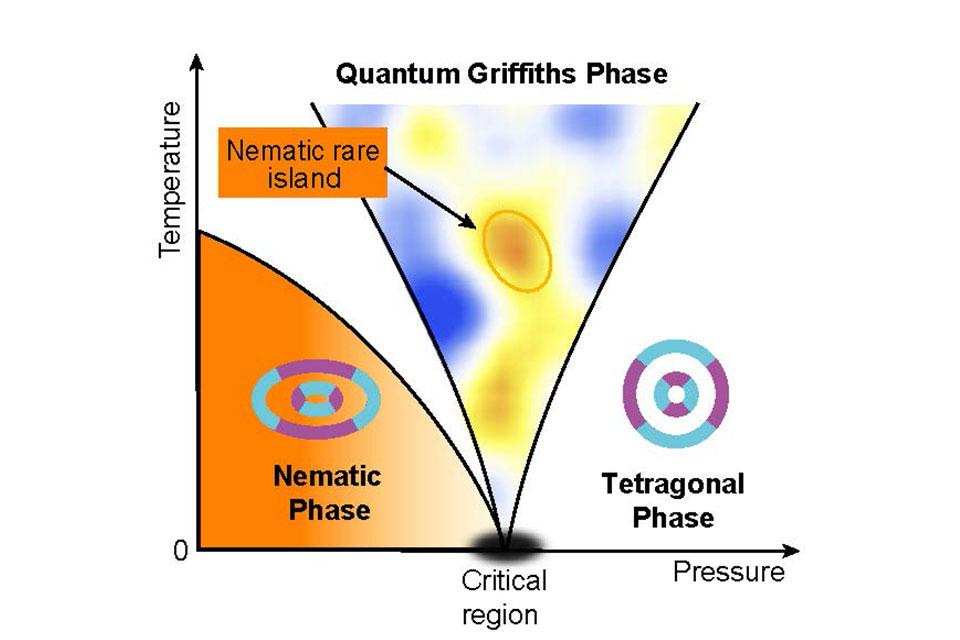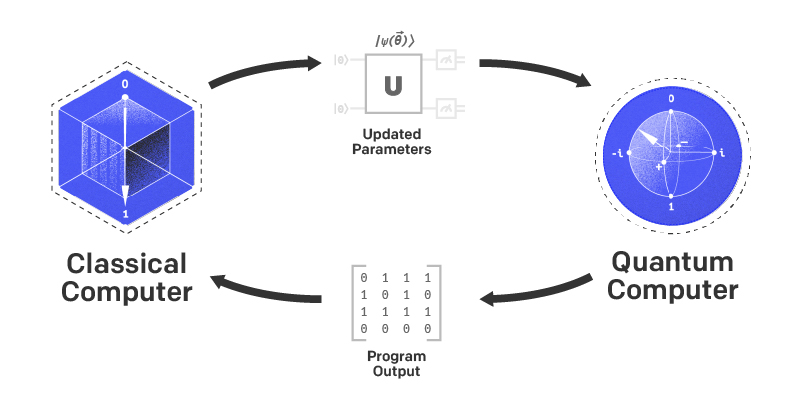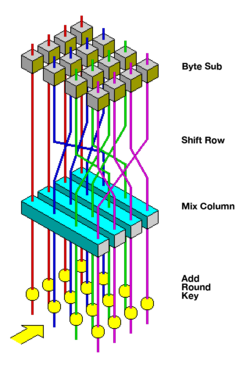The Next Leap in Technology: Quantum Computing
The world stands on the precipice of a technological revolution that promises to redefine the boundaries of processing power, data security, and problem-solving. This revolution is driven by the rapid advancement in the field of quantum computing—a realm where the traditional laws of computing give way to the strange and counter-intuitive principles of quantum mechanics.
Quantum computing harnesses the peculiar ability of subatomic particles to exist in more than one state at any time. These particles, known as quantum bits or 'qubits,' are the fundamental building blocks of quantum computers. Unlike classical bits, which are confined to being either a 0 or a 1, qubits can be both at the same time, thanks to a property called superposition. This is vital as it allows quantum computers to handle and process vast amounts of data much more efficiently than their classical counterparts.
Scientists and engineers have been drawn to the potential of quantum computing for several reasons. The ability to process complex calculations at speeds unfathomable to current supercomputers is arguably the most exciting. This carries implications for a range of disciplines, from cryptography, which relies on complex mathematics that quantum computers can process quickly, thus potentially breaking many of the encryption protocols that secure our digital communications today, to the pharmaceutical industry, where quantum computing can dramatically speed up the discovery of new drugs by simulating the behavior of molecules at a level of detail never before possible.
For decades, quantum computing was largely theoretical. Today, however, it is moving swiftly from theory to reality. Tech giants like IBM, Google, and Microsoft are investing billions into quantum research and development, while startups like Rigetti Computing and D-Wave Systems are also making significant strides. The field is still in its infancy, but progress is accelerating. Google's announcement of achieving 'quantum supremacy' in 2019 was a benchmark moment; their quantum computer, Sycamore, completed a complex computation in 200 seconds that, they claimed, would take the most powerful supercomputers 10,000 years to execute.
Despite this landmark, many challenges remain. Quantum systems are notoriously delicate; qubits are susceptible to interference from the slightest environmental disturbances—a phenomenon known as 'quantum decoherence.' To combat this, quantum computers operate in highly controlled conditions, often deep-cooled to near absolute zero temperatures. Furthermore, the management of qubits in a stable and coherent state, referred to as 'quantum error correction,' remains problematic, requiring further breakthroughs in physical and algorithmic techniques.
Another crucial hurdle is scalability. To be practical for the most ambitious applications, quantum computers will need to scale up to thousands or even millions of qubits. At present, most experimental quantum computers operate with fewer than 100 qubits. Cross-disciplinary efforts in physics, engineering, computer science, and materials science are converging to meet these challenges but make no mistake, the technical hurdles are substantial.
However, the potential rewards are vast. For example, quantum computing could enable advancements in artificial intelligence by processing complex algorithms that can lead to more nuanced and sophisticated decision-making. It could also revolutionize climate modeling, providing detailed simulations of environmental systems to predict weather patterns, natural disasters, and the long-term impacts of climate change.
As we delve deeper into this nascent technological frontier, ethical considerations must also be at the forefront. The potential for misuse of such powerful computational capabilities is real, and the implications for cybersecurity, privacy, and global power dynamics are profound.
This thrilling quantum future is still years, perhaps even decades away. However, the pace of innovation could surprise us all. The quantum race is on, with researchers worldwide striving to unlock the mysteries of quantum mechanics and apply them to computing. It's a journey into the unknown, with the promise to expand our computational horizons beyond anything we've ever imagined.As we witness the burgeoning quantum evolution, governments and private entities alike are recognizing the strategic importance of quantum technologies. Major powers like the United States, China, and the European Union are pouring resources into their research programs, keenly aware that quantum computing heralds not just a new era of computing power, but also of national security. The implications of being the first to harness such technology have far-reaching geopolitical consequences.
The Chinese government, for instance, has made significant investments in quantum research, aiming to lead in what they refer to as "the next information revolution." In 2016, they launched the world's first quantum communications satellite, which is capable of ultra-secure communications using quantum key distribution, a technique wherein the properties of quantum mechanics are used to encrypt messages in a way that any interception attempt would be easily detected. This exemplifies not just the race for computational power, but also for quantum-enhanced security that could redefine global intelligence and information sharing.
Similarly, the United States’ National Quantum Initiative, established in 2018, commits to accelerating quantum R&D with a multi-billion dollar budget over a decade. Among the goals of this initiative are to foster a quantum-smart workforce and to support the development of quantum algorithms, software, and benchmarks, showcasing the multifaceted approach required to make quantum computing a reality.
In the burgeoning ecosystem of quantum technology, startups play an increasingly critical role. They often act as the nimble innovators that push boundaries and develop niche applications. Through partnerships with established corporations and governments, these nimble entities are essential in bridging the lab-to-market gap.
The practical applications of quantum computing, while broad, face considerable expectations. One particularly promising field is modern medicine. The complex interaction of proteins and the process of drug discovery are problems well-suited to quantum algorithms. Quantum simulations could accurately predict the effects of drugs on the human body, leading to more targeted and effective treatments with fewer side-effects. This could dramatically reduce the traditionally long and costly drug development process, making life-saving treatments more rapidly available.
Material science is another frontier for quantum advantage. Industries are on the verge of discovering new materials with specific, often customizable properties, such as superconductors that operate at room temperature, which could revolutionize the energy sector by radically decreasing transmission losses in power grids.
Quantum advancements will also significantly impact the field of optimization—problems involving finding the best solution from all feasible solutions, which are widespread from logistics to finance. For instance, a quantum computer could optimize delivery routes for a fleet of trucks in a way no classical computer could match, saving fuel and time.
On the darker side, the power of quantum computing raises concerns about data privacy and cybersecurity. Modern encryption methods could become obsolete overnight if a sufficiently powerful quantum computer came online. This has led to a parallel field of research: post-quantum cryptography, which aims to develop security protocols that can withstand the might of quantum computing.
The quantum future, however, is not without its skeptics. Some experts caution against excessive hype, pointing out that substantive advancements and widespread practical applications are still theoretical or in early developmental stages. They caution against underestimating the complexity of the engineering challenges ahead and suggest that it could be decades before quantum computers are widely used.
Despite these caveats, the momentum behind quantum computing is undeniable, fuelled by both the allure of its potential and the palpable progress in research labs around the world. While the day-to-day impact of quantum technologies may still be some years away, the journey towards quantum readiness has begun in earnest, and the race is undoubtedly accelerating.
For industries, governments, and security experts, the question is not if quantum computing will become a part of our technological landscape, but when, and how profound its impact will be. As the world edges closer to overcoming the challenges, the integration of quantum computing with classical systems will likely be the first step—offering a hybrid solution that leverages the strengths of both technologies.
In conclusion, quantum computing is not just about the awe-inspiring speeds and the shattering of computational barriers—it's also a narrative of how our society will adapt to and adopt a technology that redefines what's possible. It's a story that's just beginning to unfold, an exciting chapter in the saga of human innovation that may well be the most transformative yet.






















Comments